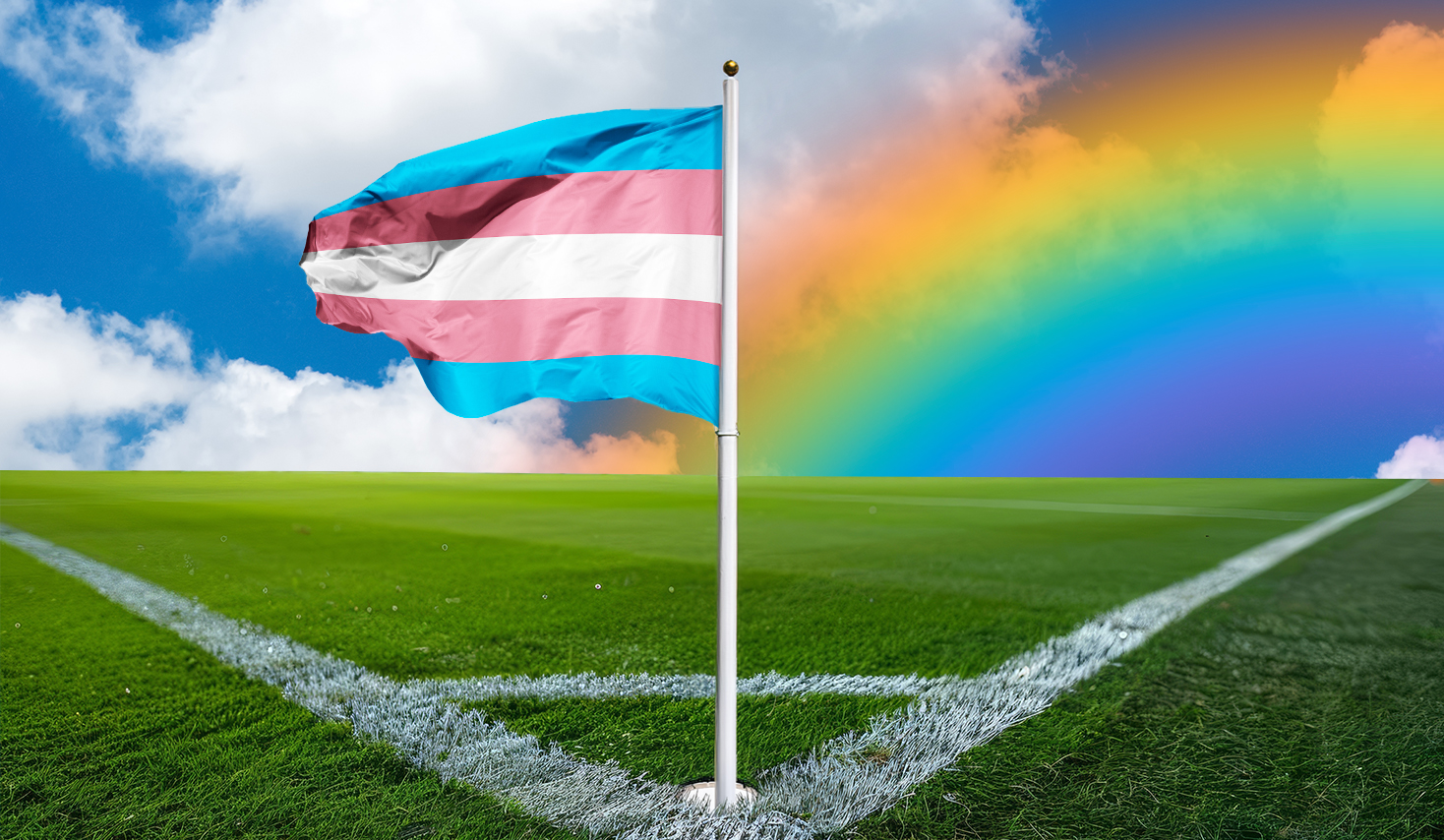
Sports journalist Grace Robertson explains what a powerful conversation, a game of footy and trans acceptance all have in common.
WORDS BY GRACE ROBERTSON
IN COLLABORATION WITH VERSUS
HEADER DESIGN BY JACK ROWE

TW – Mentions of suicide and depression
Why do I write about football? On one hand, the answer is pretty simple: it’s fun, and I like doing it. I feel incredibly privileged that this is what I do for a living. But there are times when I ask myself, with everything that’s going on in the world, why do I write about football? Shouldn’t I be talking about things that truly matter like the injustices I and others experience as trans women? Wouldn’t that be a better use of my precious time on Earth, rather than writing about kicking a ball around? But that’s precisely why I write about it.
I wasn’t always a football fan. I was an awkward child, who shunned a lot of things I was supposed to do or like. But come the 2002 World Cup, at age 10, watching football seemed like a shortcut to fitting in. If I could talk to people about football, I had a way to seem normal. And so that’s what I did. From there, it really did hook me, but it also served its purpose. Football was a way of cutting through the awkwardness I felt as a closeted (even to myself) trans woman trying to work her way through male spaces. I didn’t feel like I understood most men or how I was supposed to relate to them. But as soon as I started talking about football, none of that mattered. It could fill any uncomfortable silence. It was a cheat code. I didn’t really know how to be a man, but through football, I could fake it until I realised I never wanted to make it.
The most popular sport in the world can drive new conversations. That’s why powerful individuals are so interested in it. Brands invest a fortune in associating themselves with clubs and players because it helps them cut through. Qatar wanted to host the 2022 World Cup precisely because it was a way to shape global perceptions about the country and access soft power. Some people in Newcastle suddenly held positive opinions about the Kingdom of Saudi Arabia because the country’s Public Investment Fund bought their beloved football club. Little gets people talking the way football does.
But it’s also something I’ve been able to use to positive ends. If you want to reach people, you have to speak their language. And for an awful lot of us, that language is football. I’ve been able to build up an audience of people reading me because they want to know if Joshua Zirkzee is going to be the striker Manchester United are looking for, or if Arne Slot’s ideas will work at Liverpool. Trans issues aren’t really on their radar. For the most part, I don’t think people who start reading my work are particularly for or against trans rights; they just haven’t thought about it.
For all that direct advocacy has its values, I sometimes think the way for a minority group to be heard is to show ourselves existing as complete people. Activism is hard, important and necessary work to change the world. At the same time, trans people cannot only be seen as activists. If you can see us talking about shared interests, like football, that’s a totally different level to connect with someone on. I talk about trans issues now and again to an audience that isn’t here to seek them out, but is nonetheless one I’ve built a rapport and level of trust with. If I wrote exclusively about trans activism, I would never get their attention.
That might not be the most important reason to do it, though. When I first started questioning my gender over a decade ago, I asked myself if I could even continue to like football. It just felt like such a masculine culture, such a male trait that I could never embrace if I were to transition. Obviously, I can now see that this wasn’t true. But what I needed to see back then was a trans woman openly talking about football, being herself with the sport was absolutely a part of that. If I can show someone else that they can still be a trans girl and like football, that it can still be a part of their gender identity, I’ll feel like I’m doing good in the world. You can want to be a girl and talk about Spain’s aggressive use of wingers stretching the play. It’s fine to do both.
There’s a tweet that stays with me a lot. If you are transgender, the tweet claims, then, first and foremost, you have to live. An awful lot of trans people, myself included, have thought at times about ending it all (I’m doing a lot better these days, to be clear). The pain of gender dysphoria alone is enough to drive someone to desperation before even considering what the world thinks of our minority. The most important thing I can do for myself is to wake up every day, still here. After that, it’s important to show other trans people that you can thrive and live as an actual human being. I do that by talking about football.
For all that football is a game of kicking a ball around, it’s also a gateway to talking about everything else that matters. People can say “stick to sports” all they want, but they’re only closing off the avenues of meaning that it can create. What happens on the pitch is the start of the conversation, but it doesn’t have to be the end of it. Sport is a lens through which we can talk about pretty much anything and everything. It’s given me access to express my true self and talk about issues I care about in a public forum – that’s why we need more trans visibility in football.
You can read Grace’s article on trans visibility in football at Versus here.
The post Why we need more trans visibility in football appeared first on GAY TIMES.

0 Comments